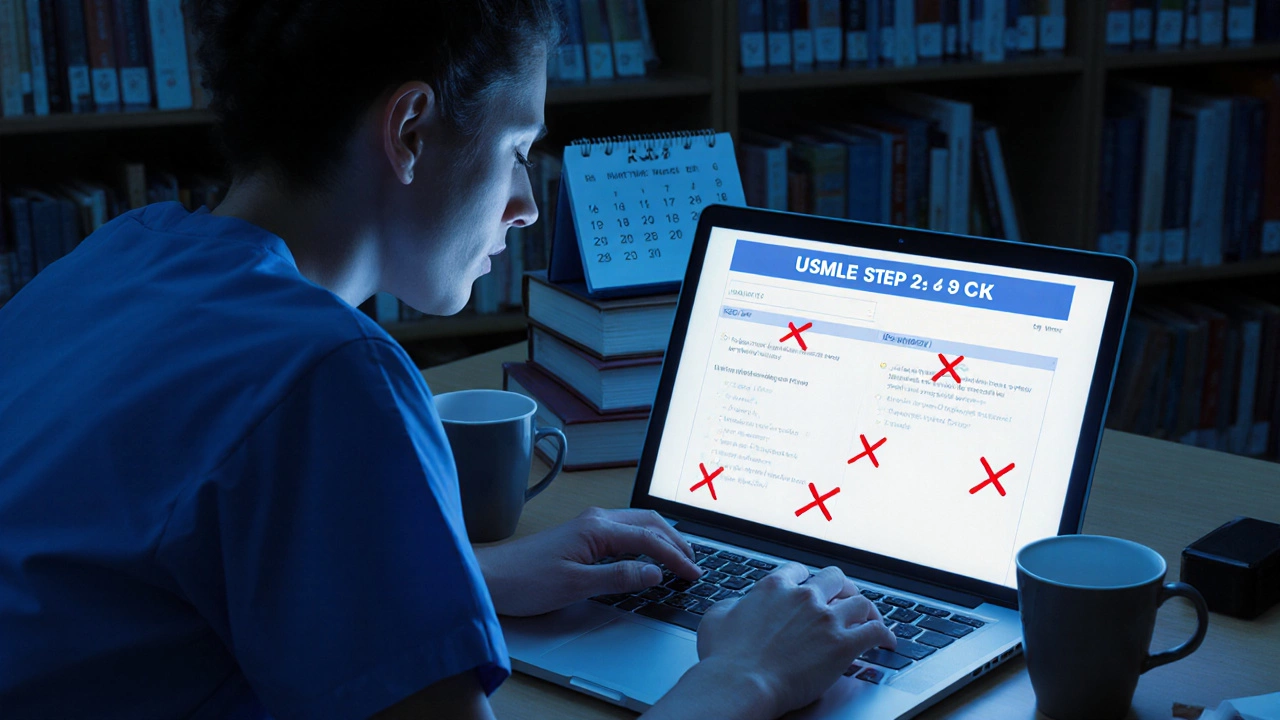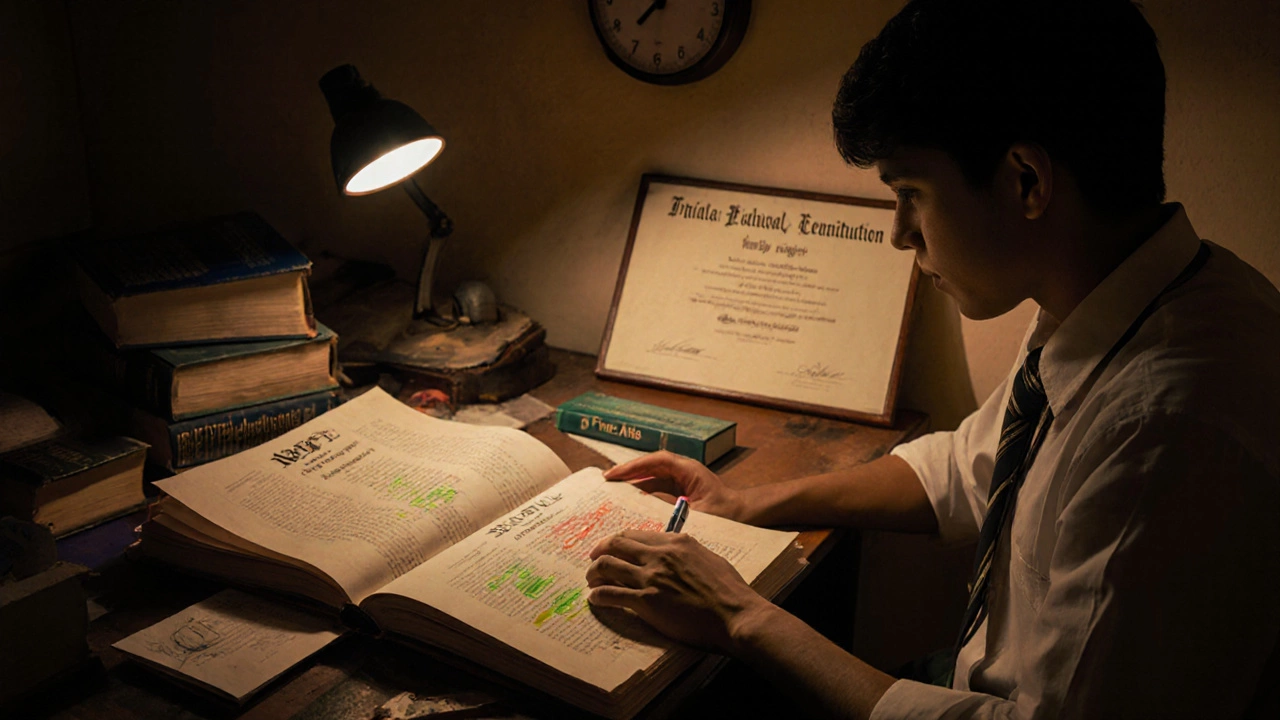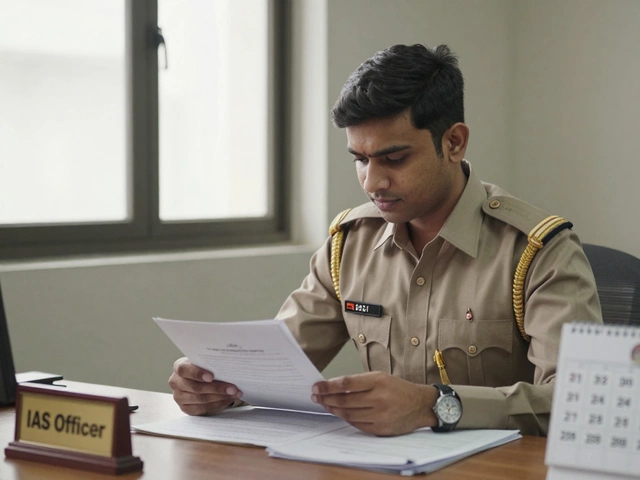When people ask about the toughest exam in the USA, they’re not just looking for a name-they want to know what makes one test harder than the rest. It’s not about how many questions there are or how long it takes. It’s about the pressure, the stakes, the years of preparation, and the fact that failing can change your entire career path. Among all the high-stakes tests in the country, one stands out not just for its difficulty, but for how it breaks people down mentally, physically, and emotionally: the USMLE Step 2 Clinical Skills (CS), now replaced by Step 2 Clinical Knowledge (CK) and other assessments, but still symbolizing the brutal gauntlet that is becoming a doctor in America.
Why the USMLE Is the Benchmark for Toughness
The United States Medical Licensing Examination (USMLE) isn’t just a test. It’s a multi-stage obstacle course that medical students must clear to practice medicine in the U.S. There are three steps: Step 1, Step 2 CK, and Step 3. Step 1, which used to be the most feared, was pass/fail since 2022, but Step 2 CK remains scored and still carries enormous weight. Step 3 comes after you’re already in residency-so by then, you’re working 80-hour weeks and studying on your only day off.What makes it brutal? First, the volume. You’re expected to know every disease, every drug interaction, every lab value across internal medicine, pediatrics, surgery, psychiatry, and more. Second, the format. Step 2 CK has 318 multiple-choice questions split over two days. Each block is 60 minutes for 40 questions. No room for error. One wrong guess can mean the difference between matching into a top residency or being stuck in the scramble.
Pass rates hover around 94% for U.S. medical graduates, but that number is misleading. For international medical graduates (IMGs), the pass rate drops to 75%. Why? Because the exam doesn’t just test knowledge-it tests how you think like an American doctor. The language, the clinical reasoning, the way symptoms are described-it all assumes a specific cultural and educational context. Many IMGs spend months relearning how to approach patient cases, not because they lack skill, but because the exam is built for U.S. training.
The Bar Exam: A Close Second
If you think law is easier than medicine, think again. The bar exam is a two-day beast that varies by state but is universally punishing. In California, it’s famously the hardest. The exam includes the Multistate Bar Exam (MBE), essay questions, and the Performance Test (PT). The MBE alone has 200 multiple-choice questions covering seven subjects. The essays require you to write legal analyses under tight time limits. The PT? You’re given a mock file and library, and you have to draft a memo, brief, or contract in three hours-with no prior knowledge of the law involved.Pass rates? In California, they often dip below 50%. In 2023, only 41% of first-time takers passed. That’s not because the candidates are unqualified. It’s because the exam is designed to filter out those who can’t handle the pressure of real legal practice. You’re expected to memorize thousands of rules, apply them to messy hypotheticals, and write clearly under stress-all while knowing that failing means delaying your career by six months or more.
Law schools don’t fully prepare you for this. Many grads spend three to six months studying full-time, using bar prep companies like Barbri or Kaplan. Some take multiple attempts. There are stories of lawyers who passed after three tries. The emotional toll is real: depression, anxiety, isolation. It’s not just hard-it’s designed to be a rite of passage.
The CPA Exam: The Accounting Gauntlet
Certified Public Accountants face their own version of hell: the CPA Exam. It’s not one test-it’s four. Auditing and Attestation (AUD), Business Environment and Concepts (BEC), Financial Accounting and Reporting (FAR), and Regulation (REG). Each section is four hours long. You have to pass all four within 18 months or lose credit on the ones you passed.FAR is the toughest. It’s packed with accounting standards, journal entries, government accounting, nonprofit accounting, and complex financial statements. You’re expected to know how to handle lease accounting under ASC 842, consolidation rules, and pension calculations-all while juggling time limits. The pass rate for FAR hovers around 45-50%. That’s lower than the bar exam in many states.
What makes it worse? You can’t just memorize. You need to understand how numbers connect across statements. A mistake in one section can cascade into errors in another. And unlike medical or law exams, there’s no clinical simulation or courtroom drama to help you learn-you’re staring at spreadsheets and tax codes for hours on end.
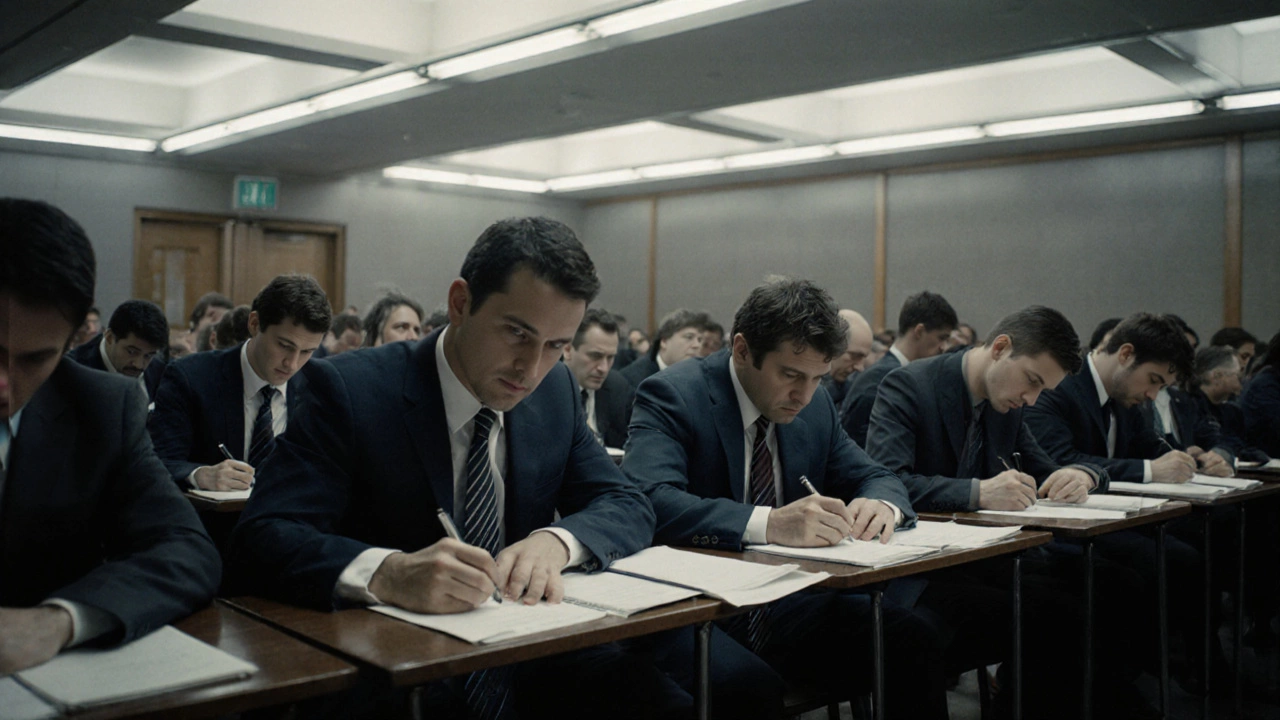
Why These Exams Are So Hard-And Why That Matters
These aren’t just tests. They’re gatekeepers. The U.S. system doesn’t just want competent professionals-it wants professionals who can survive extreme pressure, long hours, and constant learning. The USMLE, bar exam, and CPA exam are structured to weed out those who aren’t ready for the real world.Compare them to other exams. The SAT? A snapshot of high school knowledge. The GRE? A general aptitude test. The MCAT? Hard, yes-but it’s taken before medical school, not after years of training. The USMLE, bar, and CPA come at the end of long, expensive journeys. You’ve already invested $200,000 in education. You’re exhausted. You’re in debt. And now you have to prove you’re good enough to be trusted with someone’s life, their legal rights, or their money.
There’s no single metric for “toughest.” But if you measure by: time spent preparing, financial cost, emotional toll, failure rates, and career impact-the USMLE Step 2 CK and the California Bar Exam are the two strongest contenders. Between them, the USMLE edges out because it spans years, not days. You don’t just take it-you live it.
What About Other Exams? SAT, GRE, MCAT?
Sure, the MCAT is intense. It’s seven and a half hours long. You need to know biology, chemistry, physics, psychology, and critical analysis. But it’s taken before you enter medical school. You’re not working 70-hour weeks while studying for it. You’re not paying $300,000 in tuition. The stakes are high, but they’re not life-altering in the same way.The GRE? It’s a general test. Many PhD programs are dropping it because it doesn’t predict success. The SAT? High schoolers take it. It’s a benchmark, not a barrier.
None of them come close to the USMLE, bar, or CPA in terms of real-world consequences. Fail the SAT, you retake it. Fail the GRE, you try again next year. Fail the USMLE Step 2 CK, and you might lose your residency spot. Fail the bar, and you can’t practice law. Fail the CPA, and you can’t sign off on audits. These aren’t academic hurdles-they’re professional death sentences if you don’t clear them.
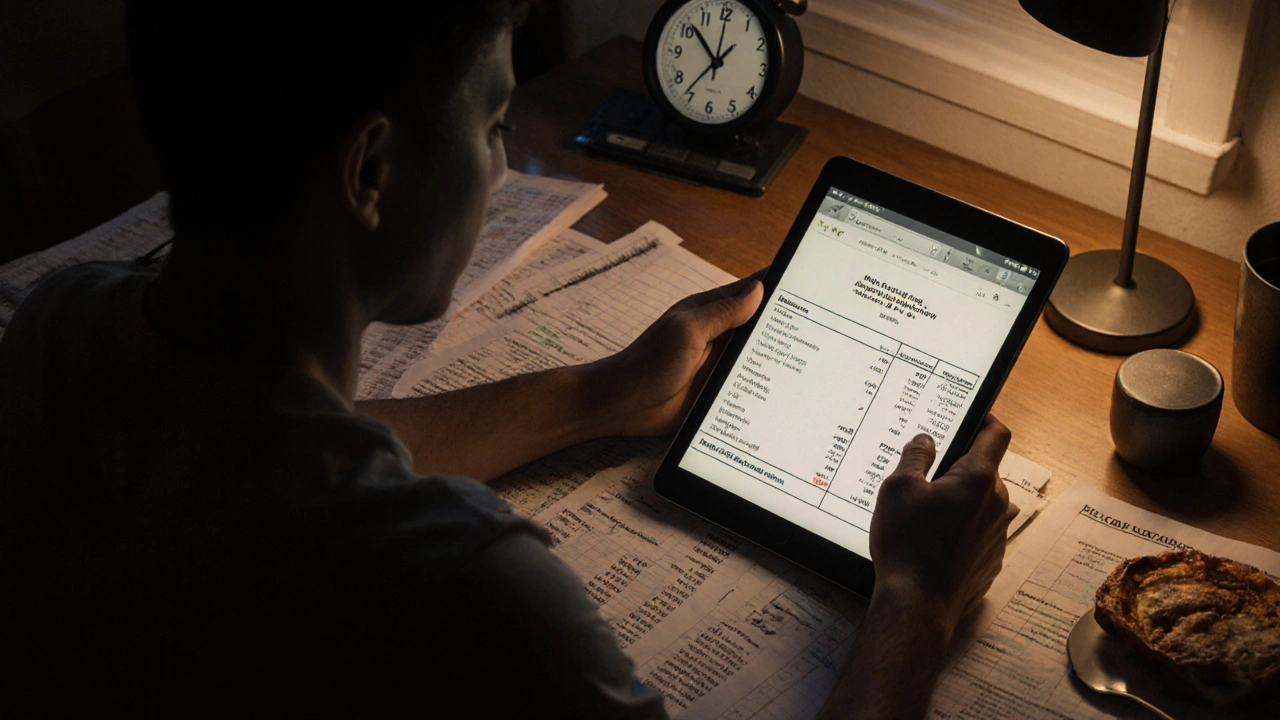
Who Succeeds? And How?
People who pass these exams don’t just study harder. They study smarter. They use spaced repetition. They take full-length practice exams under timed conditions. They join study groups. They sleep. They manage stress. They know that burnout is the real enemy, not the material.USMLE takers use UWorld and First Aid religiously. Bar exam takers drill with AdaptiBar and Emanuel’s Strategies & Tactics. CPA candidates live in Becker or Wiley. These aren’t just study tools-they’re lifelines.
And they all have one thing in common: they accept that failure is part of the process. Many who pass took the test twice. Some took it three times. The difference between those who succeed and those who don’t isn’t intelligence-it’s persistence.
Final Thought: It’s Not About the Exam, It’s About the Journey
The toughest exam in the USA isn’t just hard because of its content. It’s hard because it’s the final test of your commitment. It’s the moment you prove you’re willing to sacrifice everything to become a doctor, a lawyer, or a CPA. The USMLE, the bar exam, and the CPA exam are not just tests of knowledge-they’re tests of character.If you’re preparing for one of them, know this: you’re not alone. Thousands before you have sat in the same quiet rooms, staring at screens, hearts pounding, wondering if they’ll make it. And most of them did. Not because they were the smartest. But because they refused to quit.
Is the USMLE the hardest exam in the USA?
Yes, for most professionals in the medical field, the USMLE-especially Step 2 CK-is considered the hardest. It’s not just the volume of material, but the pressure, the timing, and the fact that it comes after years of medical training. For international graduates, the cultural and linguistic barriers add another layer of difficulty. While the bar exam and CPA exam are extremely tough, the USMLE spans multiple years and has the highest emotional and financial stakes for those pursuing medicine.
Which state has the hardest bar exam?
California has the hardest bar exam in the U.S. Its pass rate is often below 50%, compared to the national average of around 70%. It includes a unique Performance Test that requires drafting legal documents from scratch, plus a wide range of essay topics. Many candidates spend months preparing and still fail on their first attempt. Other states like Louisiana and New York also have difficult exams, but California is consistently the toughest.
Can you pass the CPA exam without a degree in accounting?
Yes, but you need 150 semester hours of college credit, which usually means a bachelor’s plus some graduate coursework. You don’t need an accounting degree, but you must have specific accounting and business courses-like auditing, taxation, and financial reporting. Many non-accounting majors take extra classes at community colleges to meet these requirements. The exam tests knowledge, not your major.
How long do people study for the USMLE Step 2 CK?
Most students study for 4 to 8 weeks full-time, often after completing their core clinical rotations. Some take up to 12 weeks if they’re working part-time or need extra time. The average is about 6 weeks, with 8-10 hours of study per day. UWorld question banks and First Aid are the most commonly used resources. Many take 2-3 full-length practice exams before the real test.
What’s the failure rate for the USMLE Step 2 CK?
The overall pass rate for U.S. medical graduates is about 94%, meaning roughly 6% fail. For international medical graduates, the pass rate drops to around 75%, so about 25% fail. The exam is scored, and you need a minimum of 214 to pass. Most who fail do so because of poor time management or weak clinical reasoning-not lack of knowledge.
Are there any exams harder than the USMLE in the world?
Yes. In countries like India, the NEET PG and AIIMS entrance exams are considered even harder due to extreme competition and low acceptance rates. In China, the National Medical Licensing Examination has a pass rate below 50% in some years. But among Western countries, the USMLE remains one of the most demanding due to its breadth, depth, and the pressure of the U.S. healthcare system.
